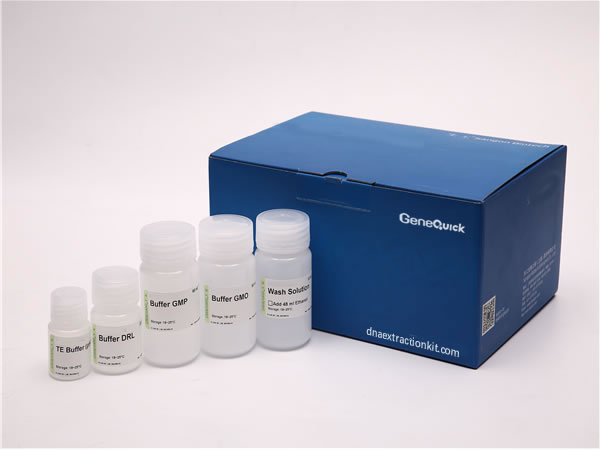What is Forensic DNA Extraction Kit for Cell?
A Forensic DNA Extraction Kit for Cell is a specialized scientific tool designed to isolate DNA from cell samples in forensic investigations. It enables the extraction of genetic material from various types of cells, such as those found in skin, blood, or other biological evidence, which is crucial for identifying individuals or analyzing crime scene evidence. This kit simplifies the process, making it accessible for laboratories to obtain high-quality DNA for further analysis, supporting justice and accuracy in legal contexts.
In forensic science, extracting DNA from cells is a fundamental step, as it provides the genetic blueprint needed for comparisons and identifications. This kit is tailored to handle the unique challenges of forensic samples, such as degradation or contamination, ensuring reliable results. By using this kit, forensic experts can efficiently process cell-based evidence, contributing to investigations and aiding in solving cases with scientific precision.

Technical Specifications
| Model | Method | Sample | Application | Format | Workflow |
|---|---|---|---|---|---|
| F-M-CELL-20R | Magnetic Beads | Cultured Cells | Forensic | 20R | Manual |
| F-M-CELL-50R | Magnetic Beads | Cultured Cells | Forensic | 50R | Manual |
| F-M-CELL-100R | Magnetic Beads | Cultured Cells | Forensic | 100R | Manual |
| F-M-CELL-200R | Magnetic Beads | Cultured Cells | Forensic | 200R | Manual |
| F-M-CELL-8R | Magnetic Beads | Cultured Cells | Forensic | 8R | Semi-automated or Full Automation |
| F-M-CELL-24R | Magnetic Beads | Cultured Cells | Forensic | 24R | Semi-automated or Full Automation |
| F-M-CELL-48R | Magnetic Beads | Cultured Cells | Forensic | 48R | Semi-automated or Full Automation |
| F-M-CELL-72R | Magnetic Beads | Cultured Cells | Forensic | 72R | Semi-automated or Full Automation |
| F-M-CELL-96R | Magnetic Beads | Cultured Cells | Forensic | 96R | Semi-automated or Full Automation |
Working Principle
The principle behind the Forensic DNA Extraction Kit for Cell involves a series of biochemical steps to break open cell membranes and release DNA. It often uses lysis buffers to dissolve cellular structures, followed by purification methods to separate DNA from proteins and other contaminants. This process ensures that the DNA is isolated in a form that is pure and ready for analysis, leveraging techniques like centrifugation or filtration to achieve high yields.
By employing specific reagents tailored for forensic samples, the kit minimizes degradation and maximizes DNA integrity, which is critical for accurate forensic outcomes. The underlying science combines chemistry and biology to efficiently extract genetic material, making it a cornerstone of modern forensic DNA analysis.
Performance
The performance of a Forensic DNA Extraction Kit for Cell is evaluated based on its efficiency in yielding pure and intact DNA from cellular materials. It typically delivers high DNA recovery rates, with minimal contamination or degradation, which is essential for sensitive forensic applications like PCR amplification or sequencing. The kit is designed to work quickly, often processing multiple samples simultaneously, saving time in time-sensitive investigations.
Moreover, this kit consistently produces DNA that meets the stringent quality standards required for forensic analysis, ensuring that the genetic material is suitable for downstream techniques. Its reliability in various conditions, such as with aged or limited samples, makes it a trusted choice for forensic laboratories worldwide, enhancing the overall accuracy and success of DNA-based evidence handling.
Application
The Forensic DNA Extraction Kit for Cell is widely used in forensic laboratories for applications such as criminal investigations, where it helps extract DNA from cell samples like skin cells left at crime scenes or from buccal swabs. It is also employed in paternity testing, missing persons identification, and other legal contexts where genetic evidence is key. By providing clean DNA, it supports techniques like DNA profiling and matching, which are vital for establishing identity or linking suspects to evidence.
Additionally, this kit finds use in research settings focused on forensic genetics, enabling studies on DNA variation and population genetics. Its versatility allows it to handle a range of cell types, making it indispensable for comprehensive forensic work that requires robust and reproducible results.
Core Features and Advantages
The core features of this kit include its high specificity for cell-based forensic samples, user-friendly protocol that reduces the risk of error, and compatibility with various downstream applications. It offers advantages such as rapid processing times, which is crucial in forensic cases where speed can impact investigations, and high scalability for handling multiple samples. The kit is designed to be robust, working effectively even with challenging samples like those that are degraded or contain inhibitors.
Another key advantage is its ability to produce DNA with high purity and yield, reducing the need for repeat extractions and saving resources. This makes it a cost-effective and reliable solution for forensic labs, enhancing overall workflow efficiency and supporting accurate genetic analysis in legal proceedings.